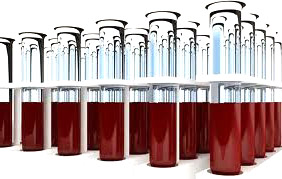How do you read a blood report rangelabtest
 Published: 20 Aug 2024
Published: 20 Aug 2024
Understanding Blood Work
Routine Blood Tests
The complete blood count (CBC) is a common blood test that measures various aspects of your blood, including:
* Red blood cells
* White blood cells
* Hemoglobin
* Hematocrit
* Platelets
Frequency of Bloodwork
The frequency of bloodwork depends on your age and overall health. It can help:
* Detect developing health concerns
* Track changes in your blood over time
* Monitor existing conditions, such as diabetes or high cholesterol
Common Blood Tests
In addition to CBCs, other common blood tests include:
Basic Metabolic Panel (BMP): Measures electrolytes, glucose, and other chemicals.
Lipid Panel: Tests for cholesterol and triglycerides.
Coagulation Panel: Assesses blood clotting factors.
Enzyme Tests: Identify muscle or heart damage.
Importance of Blood Tests
Blood tests provide valuable insights into your overall health and can help:
* Diagnose diseases
* Monitor chronic conditions
* Evaluate organ function
* Detect clotting or bleeding disorders
* Assess immune system health
Types of Blood Tests
There are numerous types of blood tests, each with a specific purpose:
* Chemistry tests: Measure chemicals in the blood (e.g., glucose, electrolytes)
* Enzyme tests: Evaluate enzyme levels to detect organ damage or disease
* Coagulation tests: Monitor blood clotting function
* Immunology tests: Assess the immune system's ability to fight infection
* Hematology tests: Examine blood cells (e.g., CBC)
Additional Information
It's generally recommended to get a basic metabolic panel at least annually during your physical checkup. If you have certain health conditions, you may need more frequent bloodwork. Your healthcare provider can advise you on the appropriate testing schedule for your individual needs.
 Published: 20 Aug 2024
Published: 20 Aug 2024